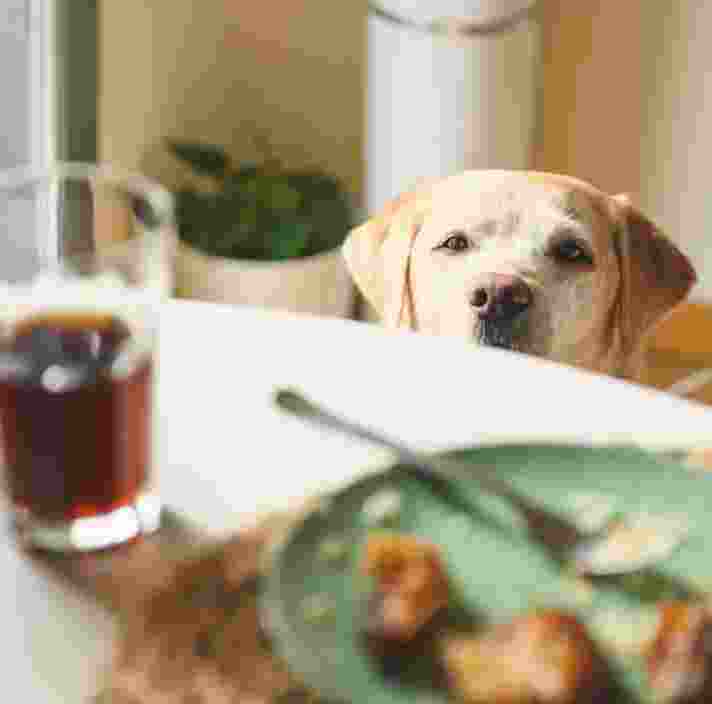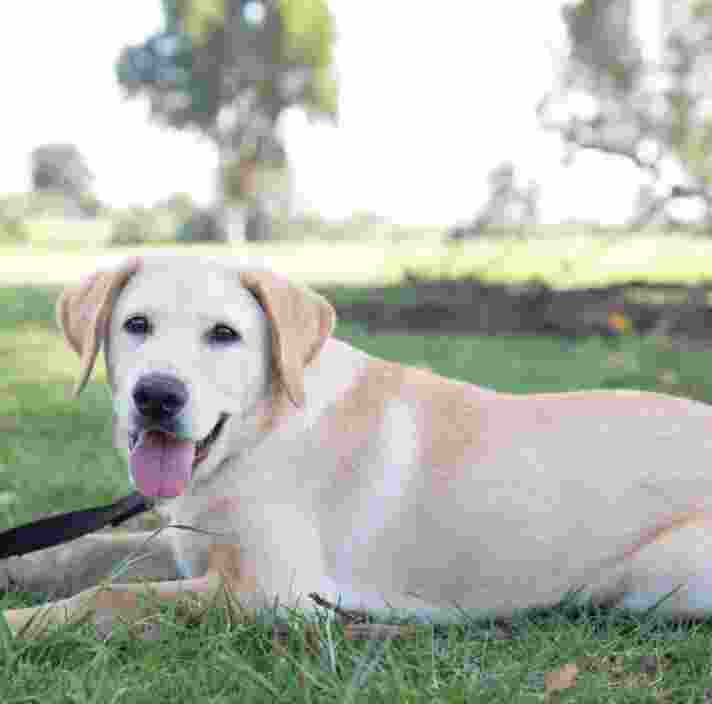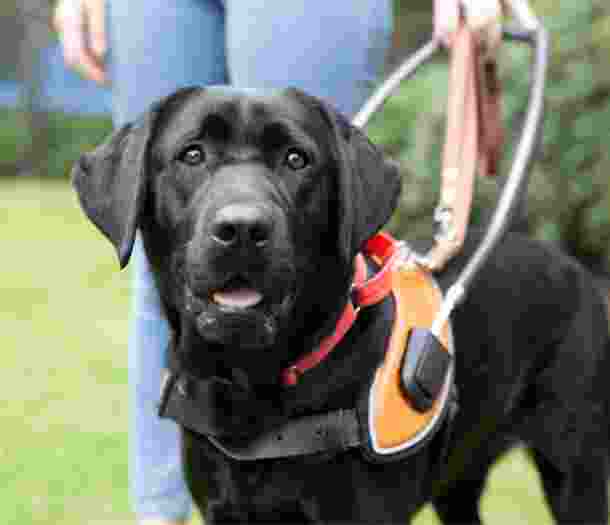Understanding the Commitment
Bed and breakfast carers (BnB) offer the perfect mix of flexibility and impact—providing a safe, caring home for a dog in training during evenings and weekends, while playing a direct role in their journey to becoming a life-changing Guide Dog.
This mid-term commitment usually lasts 3-6 months. Each weekday, you’ll drop the dog off at our Bald Hills campus by 7:30am and collect them at 4pm, giving them a place to rest and recharge outside their structured training environment. Some dogs may stay in BnB care while preparing for graduation (handover), offering continued support until they’re matched with a client.
To become a Bed and Breakfast carer, you’ll need to:
- Reside near Bald Hills or travel past the campus daily.
- Allow your dog to sleep and spend time indoors.
- Have a yard with dog-proof fencing unless you live in a flat or unit.
- Have a drivers licence and access to a car to transport your dog.
- Be available for weekday transport (morning and afternoon).
- Be reliable, consistent, and comfortable supporting dogs with varied personalities.
You don’t need previous dog experience, but confidence and a willingness to learn—we’ll show you how to reinforce their training at home and help them thrive in a relaxed, caring environment. These dogs continue learning even after hours, and your consistency helps set them up for success in their future careers.
By opening your home, you’re helping shape the next generation of Guide Dogs—supporting their training, wellbeing, and readiness to change lives.
Responsibilities
Being a bed and breakfast carer is a rewarding and life-changing experience, but it comes with real responsibility. It’s important to ensure you’re able to meet the needs of the dog and support their development.
Your Time Commitment
Do you have the routine and flexibility to care for a dog during the week?
- Can you drop off the dog at our Bald Hills campus by 7:30am, and collect them after 4pm each weekday?
- Can you provide overnight care and weekend support, making the dog part of your household?
- Are you committed to maintaining consistent routines that support calm behaviour, good house manners, and emotional wellbeing?
- For handover carers: Can you be available for periodic transport to the campus for refreshers and check-ins, and support the dog to remain “placement ready” while they await their next chapter?

Looking After Your Own Safety
Are you physically prepared to care for a full-grown, active dog?
- Can you confidently walk and handle a 30–40kg dog on lead?
- Are you comfortable performing physical tasks like bending, lifting, and managing energetic greetings?
- Are you able to supervise the dog indoors and in the yard, and respond promptly to any misbehaviour or health concerns?
Ensuring the Dog’s Safety
Safety and stability are key to successful boarding placements.
- Is your home secure, with dog-safe fencing and no access to hazards such as pools, stairs, or chemicals?
- Can you provide consistent supervision and prevent access to risks like loose cords, choking hazards, or toxic plants?
- Is the dog always on lead outside your property, or safely contained in a secure yard?
- Are all household members aware of safety practices, including the proper storage of food, medications, and other household items?
Creating a Nurturing Environment
Every dog needs to feel like part of the family.
- Do you have a designated indoor space where the dog can rest and feel safe?
- Can you maintain a consistent household routine that includes feeding, grooming, quiet time, and calm supervision?
- Are you happy to reinforce appropriate indoor behaviour—such as no jumping, chewing, or inappropriate barking?
- Are you committed to using only approved training and handling techniques?
Household Expectations
Caring for a dog is a shared responsibility—everyone in the home plays a part.
- Is your whole household on board with having a dog in the home overnight and on weekends?
- Is anyone in the home fearful of or allergic to dogs?
- Do you have pets that can coexist calmly with a visiting dog? (Note: Entire dogs or reactive pets may not be compatible.)
- Are you willing to maintain Guide Dogs Queensland’s expectations for behaviour and routines—even if they differ from how your own pets are managed?

Staying Focused on the Mission
Providing support for a future Guide Dog is deeply rewarding.
- Are you committed to using only approved training and handling techniques?
- Will you work in partnership with Guide Dogs Queensland staff to report changes in behaviour or health?
- Are you able to respond to emails or calls in a timely manner?
- For handover carers: Can you provide a calm and structured environment that keeps the dog “placement ready” while they await their next chapter?
Supporting the Dog’s Health and Development
While our trainers lead the development of each dog, your role is key in maintaining progress and wellbeing.
- Will you monitor the dog’s health, grooming, and comfort during their time in your home?
- Are you committed to communicating concerns to our team as soon as they arise?
- Will you help reinforce calm, appropriate behaviour indoors—such as no jumping, chewing, or inappropriate barking?
Guide Dogs Queensland’s Responsibilities
We’re with you every step of the way.
- Treat all volunteers and the public with respect, friendliness, and consideration.
- Care for every dog using modern, kind training approaches that reflect current best-practice.
- Match each dog with a home that fits their temperament and training needs.
- Provide guidance, training, and resources to support your boarding experience.
- Maintain the health and wellbeing of each dog in our care.
- Cover the cost of approved food, equipment, and veterinary care.
- Communicate clearly and respectfully, ensuring you’re supported at every stage of the placement.
- Keep you updated about the dog’s development and celebrate their progress toward becoming a working Guide Dog.
Public Access Rights
Bed and breakfast dogs do not have public access rights. They are not permitted to accompany you into public places such as shopping centres, cafes, workplaces, or public transport.
Policies and Compliance
To ensure the best outcomes for our programs, all Bed and breakfast carers must adhere to our policies and procedures.
Volunteer to support a future Guide Dog
Expression of Interest
Ready to continue?
Seems like you have filled this form earlier. Let’s pick up where you left off.
